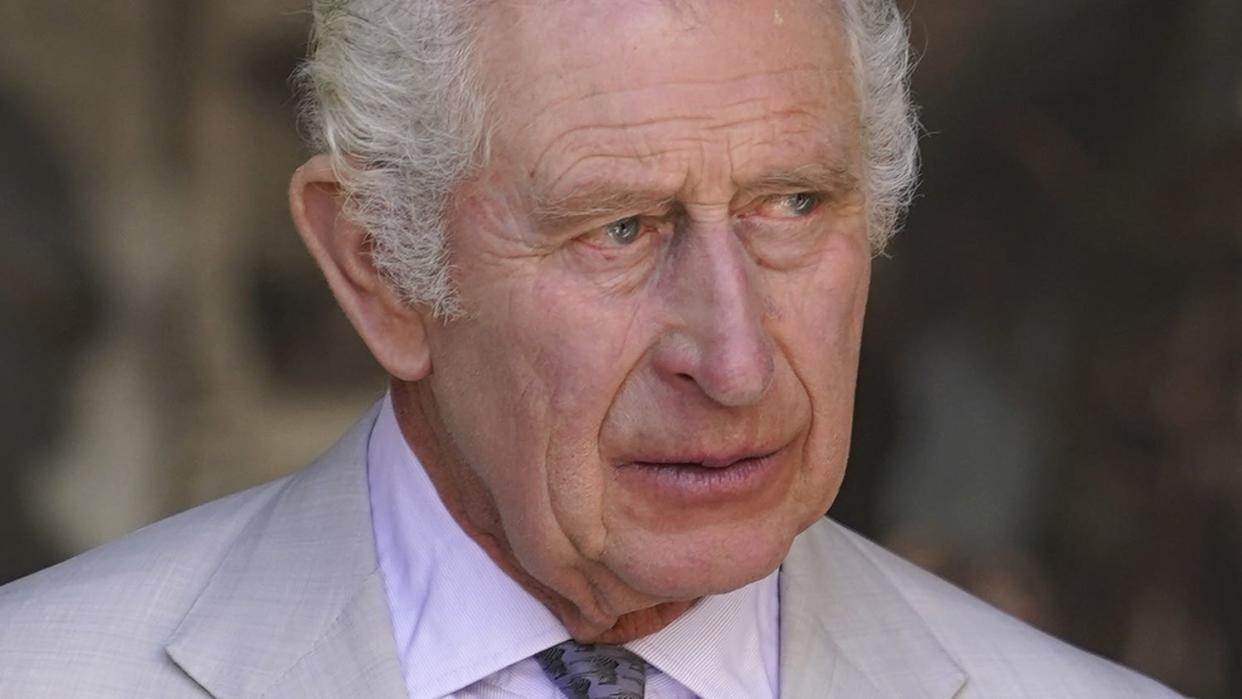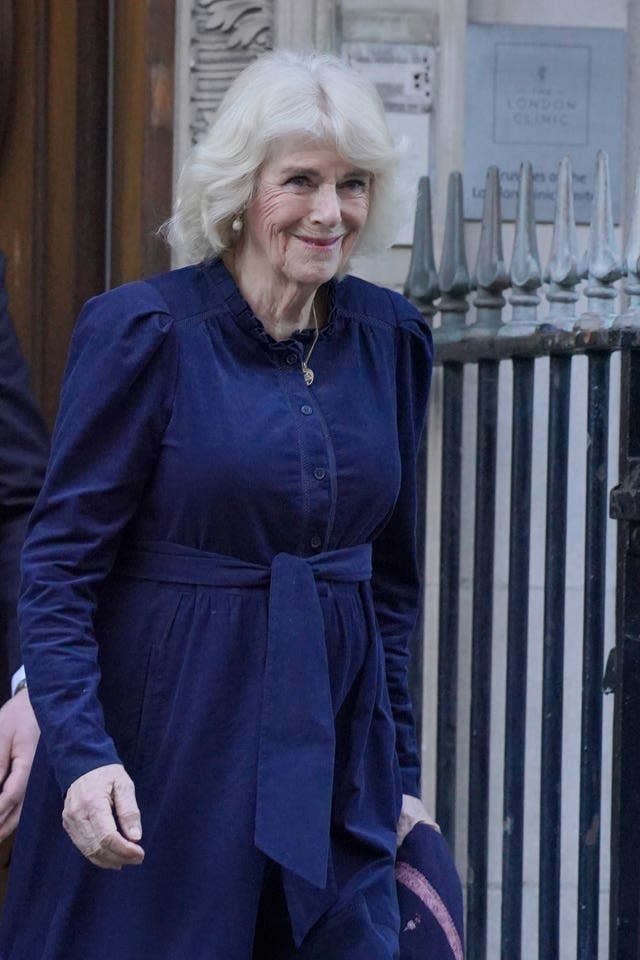King ‘doing well’ after undergoing procedure for enlarged prostate

The King is “doing well” after undergoing a procedure for an enlarged prostate.
Charles was seen entering The London Clinic on Friday morning with the Queen at his side – the same hospital where the Princess of Wales is being cared for after abdominal surgery.
Camilla left the private hospital at 3.10pm on the same day and appeared to be in good spirits as she smiled at reporters before getting into a car.
The Queen told people inside the hospital that the King was “doing well” after the procedure.
“He’s doing well, thank you,” she said.
Earlier on Friday, Charles took time to visit his daughter-in-law Kate, who is on the 11th day of her hospital stay after undergoing a successful major operation last week.
A Buckingham Palace spokesman previously said Charles was “admitted to a London hospital for scheduled treatment”.
The spokesman added: “His Majesty would like to thank all those who have sent their good wishes over the past week and is delighted to learn that his diagnosis is having a positive impact on public health awareness.”
It is not known how long Charles will spend in hospital.
The King arrived back in London from Norfolk on Thursday afternoon, ready for the procedure after squeezing in a couple of behind-the-scenes official duties.

Prime Minister Rishi Sunak wished Charles the “very best” for his treatment and a “speedy recovery” afterwards, a Downing Street spokeswoman said.
He was diagnosed with the benign condition on January 17 while staying at Birkhall, Aberdeenshire, after going for a check-up because he was experiencing symptoms.
The King is understood to have wanted to share the news to encourage other men to get themselves checked.
Charles, who only acceded to throne 16 months ago, cancelled engagements and was urged to rest by his doctors ahead of the corrective procedure.
The Queen had previously said her husband is “fine” and looking forward to getting back to work.
News of his diagnosis came on the same day that Kensington Palace announced the princess was in hospital after undergoing abdominal surgery.

Kate, 42, is not expected to carry out official engagements until after Easter, with the Prince of Wales clearing his diary of official duties for the time being.
One in every three men over the age of 50 will have symptoms of an enlarged prostate, which include needing to visit the toilet more frequently, with more urgency, and difficulty emptying the bladder.
An enlarged prostate, known as benign prostatic hyperplasia, does not usually pose a serious threat to health, and it is not cancer.
But patients may need to have several tests for the condition to rule out the possibility they have another illness with similar symptoms, such as prostate cancer.
Surgery is usually only recommended for moderate to severe symptoms that have not responded to medicine, the NHS website says.
Treatment can include a number of procedures, including removing part of the prostate gland with a laser, water ablation using the pressure of the water to destroy prostate tissue, or urethral lift implants, which hold the enlarged prostate away from the urethra so it is not blocked.
Other options include a prostate artery embolisation, during which tiny plastic particles are injected into blood vessels to shrink the prostate gland by reducing its blood supply.
NHS England said the “enlarged prostate” page on the NHS website received one visit every five seconds on the day the King’s diagnosis was announced, with further huge boosts in visits in the days that followed.


